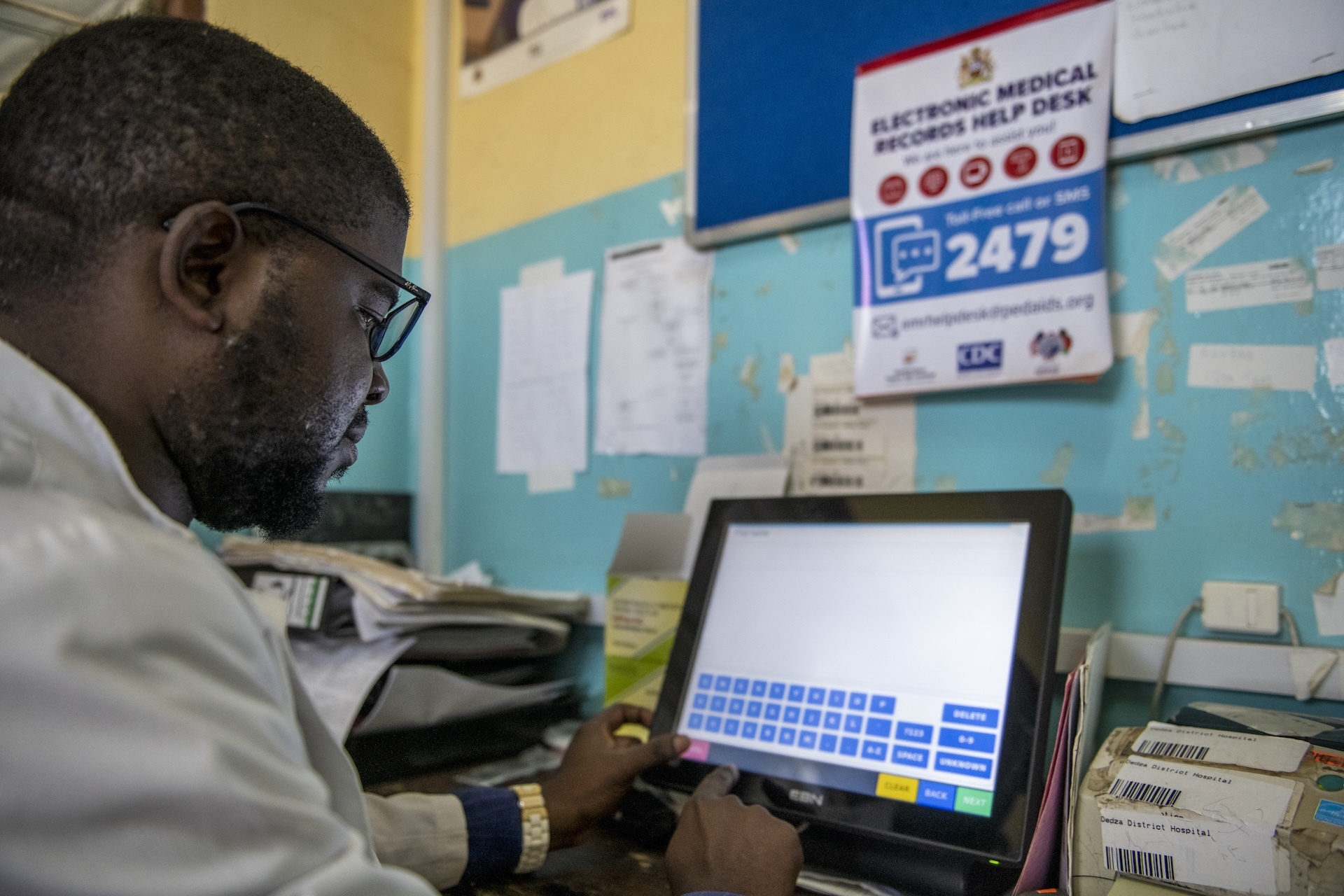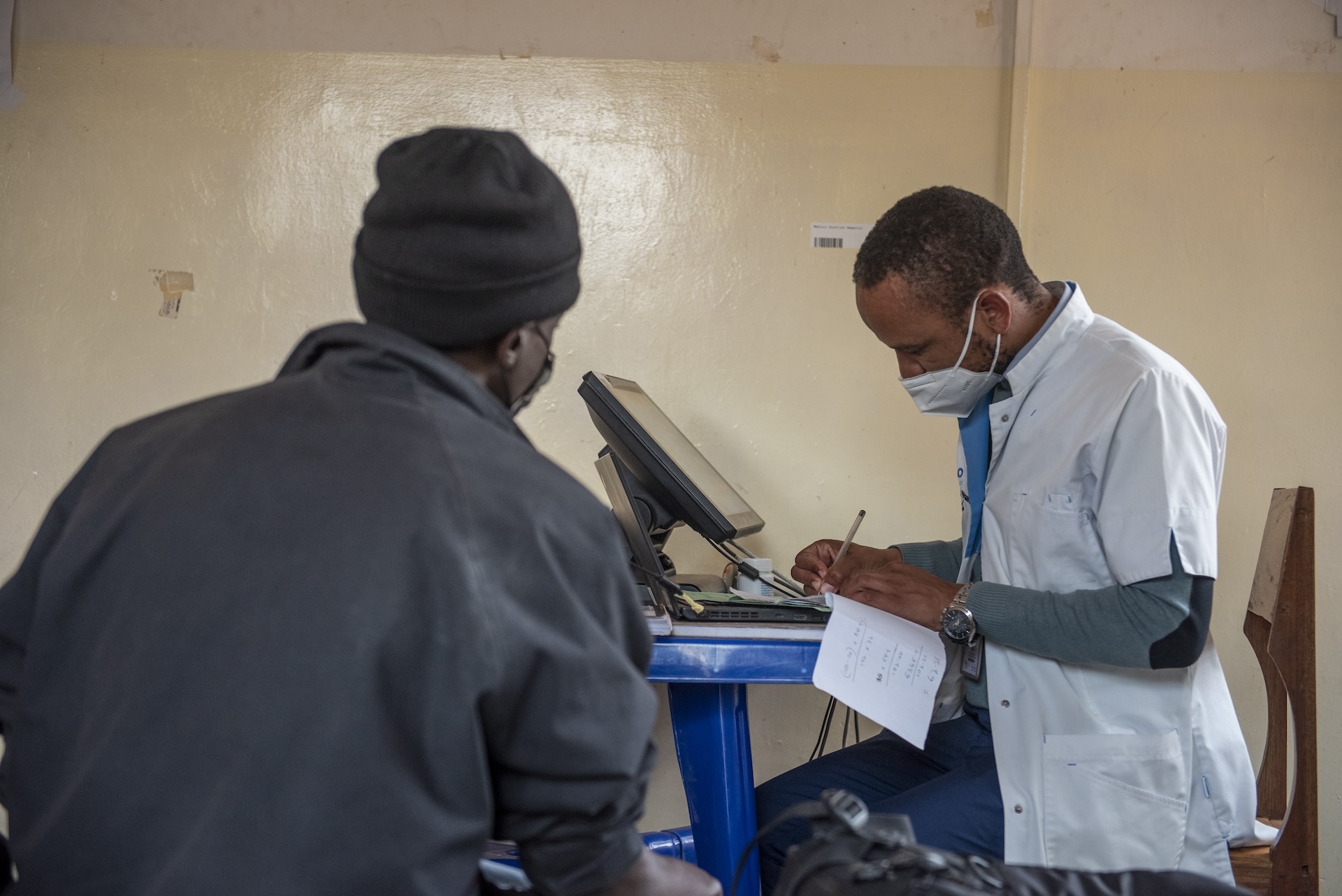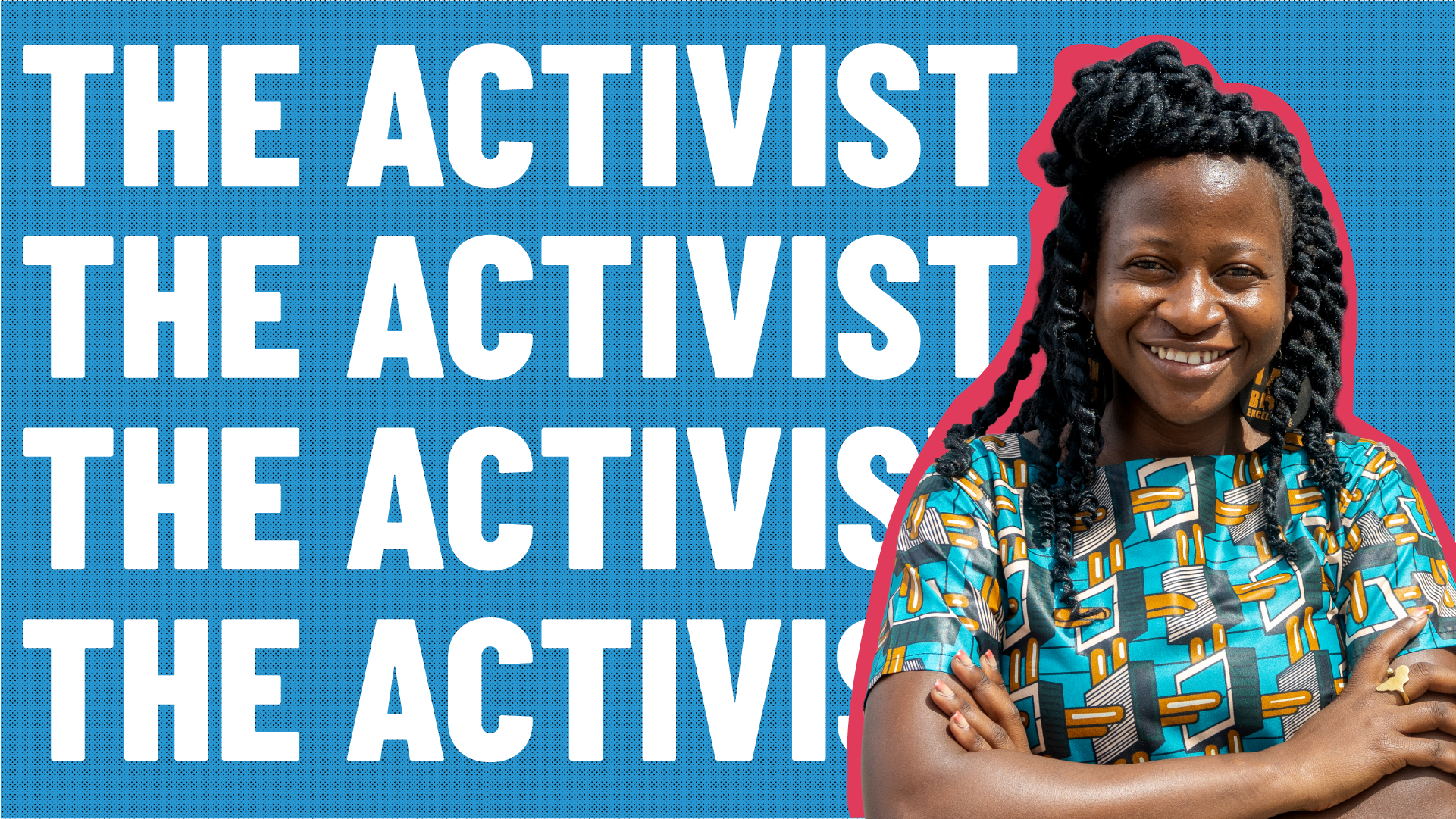A fully supported electronic medical record system requires a central database so that the information is available for many uses—from tracking patients at the clinic level to national reporting and analysis of health trends. With EGPAF’s support, Malawi’s Ministry of Health now maintains a centralized data hub, known as the data lake.
“The data lake brings all of your patient level data into one place, which was a huge accomplishment—because before all of the data just sat in different clinics on servers,” says Veena Sampathkumar, VP Program Implementation and Country Management.
“Previously you got aggregated reports to say this clinic tested so many people, identified so many people, et cetera, but you did not have access to that information on the central level. The data lake opens up opportunities for making programmatic decisions, especially around HIV.”

Data from the electronic medical records system, the lab information management system, and other inputs feeds into the lake. That information can then be visualized through the Malawi Analytics Platform. Authorized staff and stakeholders can understand trends and make informed decisions to improve patient care and health delivery.
“You can see what the current testing volume is, for instance. Are there peaks around the number of people being identified positive? Is there a supply shortage that’s affecting our advanced HIV patients? If you look at most data analytics pipelines or systems, most institutions are using commercial software, while in our case we are using entirely open-source software,” says Wiza Msuku, Data Lake team lead.
“All the pipelines, all the tools that we are using, we’ve built in-house. We are managing huge volumes of data. We are also synchronizing data on a near real-time basis. That is something very unique if you look at Malawi or at Africa as a whole.”
“Our goal is basically to do analytics that will get back to the clinics to improve treatment and care,” says Msuku.
A central database also provides the possibility of continuity as patients change health centers or local records are damaged or lost.

“So, for example, we are able to identify a family on the outskirts of Blantyre that was supposed to visit the clinic, but then they’ve missed the appointment. We are able to know that patient X from village Y was supposed to come in yesterday or last week and they did not come. So the clinical teams can take that information and return that patient back to care.”
“Our goal is basically to do analytics that will get back to the clinics to improve treatment and care.” -Wiza Msuku, Data Lake team lead
Data for Climate Resiliency
Climate change adds yet another dimension.
When Cyclone Freddy hit southeast Africa, the medical records at many facilities were lost due to flooding and damage to buildings. Some facilities in the region, still on paper-based filing systems, lost everything. But digitized medical records in Malawi were stored in the digital lake—all records lost due to washed away papers or servers have been recovered.

Data for Pandemic Preparedness

When COVID-19 hit, the HIV data lake provided a model for dealing with the new health threat. Data could be collected at the facility and in the community and analyzed nationally. A series of intuitive and real time data dashboards have been enabled to inform lab technicians, health workers, and public health officials to respond to COVID-19 and other infectious diseases.
“I think we can all confirm that COVID-19 really put health informatics in the spotlight,” says Sampathkumar. “Everybody has wanted to see where the epidemic is globally in terms of cases and in terms of mortality—and now also in terms of vaccination data. This has really pushed all of us to think about the digital health investments we’re making. We’re responding to COVID-19, but also thinking through what this means for an overall system strengthening approach.
“Over the past two to three years, the data is getting better and better in terms of completeness,” says Sampathkumar.



